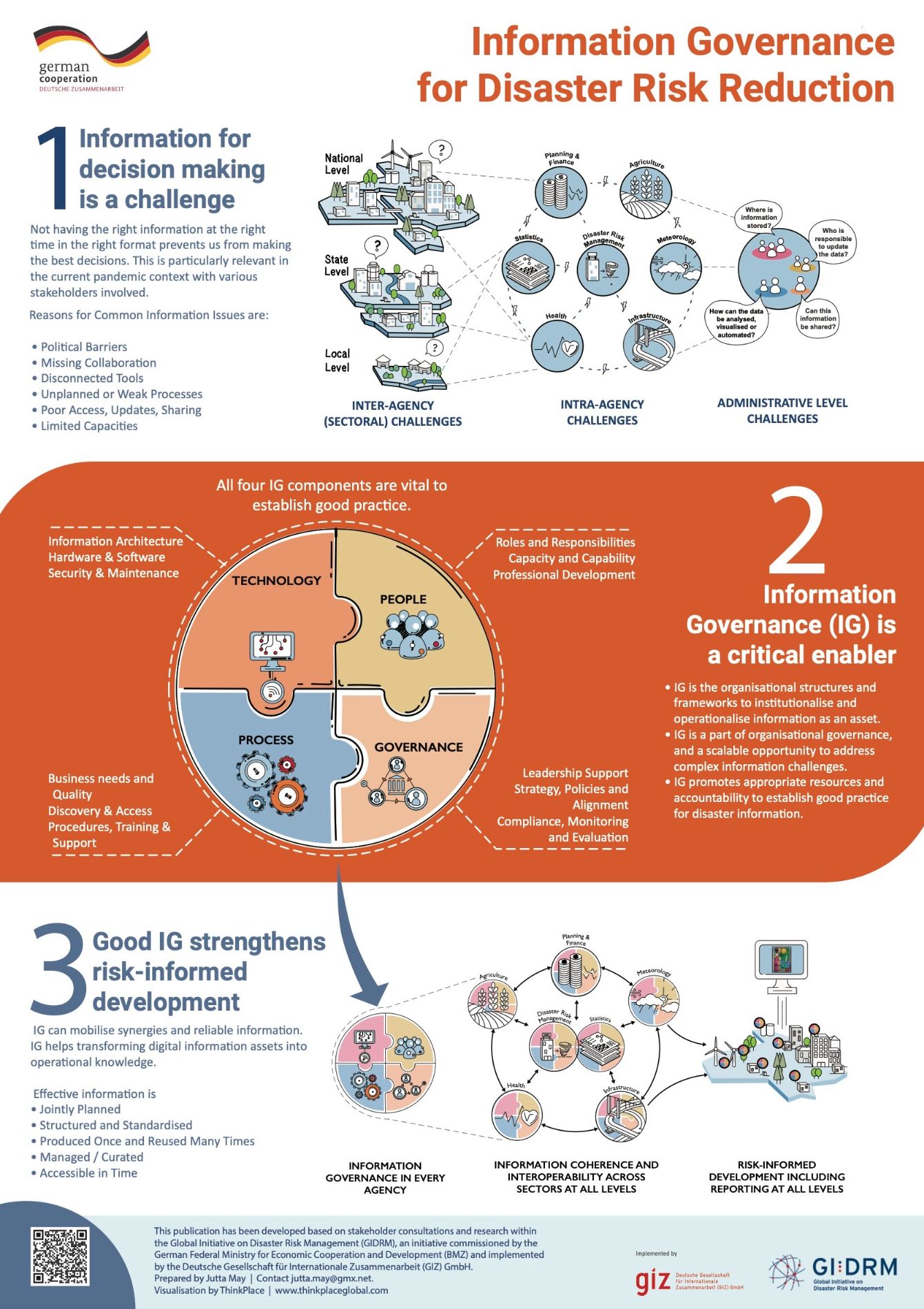Information Governance for Disaster Risk Reduction

Information Governance for Disaster Risk Reduction (IG4DRR)
Having the right information at the right time and in the right format is a challenging task. Disaster risk management (DRM) and disaster risk reduction (DRR) stakeholders need timely quality information for planning, operations and reporting against local policies, and their alignment with national frameworks or global development agendas. Community stakeholders have different information needs to perform disaster related tasks to national stakeholders, while institutional silos or operational and political barriers often limit the flows and effectiveness of information. Solutions are needed to unlock the potential of data and information, at local, national, and global levels, while addressing the gaps and duplication of continuously evolving information needs or data requirements.
Information governance (IG) is a scalable opportunity to address complex information challenges. IG provides the organisational structure and framework to institutionalise and operationalise information and data with appropriate resources and accountability to establish good practice. It comprises the enabling organisational environment with people, governance, processes, and technology.
The IG4DRR study introduces information governance and prerequisites to manage, share and reuse data and information for coherent planning, risk-informed sustainable development, and reporting. It visualises the complexities of common information management issues, the components of IG, and the positive difference when IG is applied at all levels across sectors for risk-informed development. It applies to DRM/DRR leaders and practitioners from local to national level and across sectors, horizontally and vertically.

Read the study here or download the IG4DRR poster.
The publication is based on stakeholder consultations and research within the Global Initiative on Disaster Risk Management (GIDRM), an initiative commissioned by the German Federal Ministry for Economic Cooperation and Development (BMZ) and implemented by the Deutsche Gesellschaft für Internationale Zusammenarbeit (GIZ) GmbH.